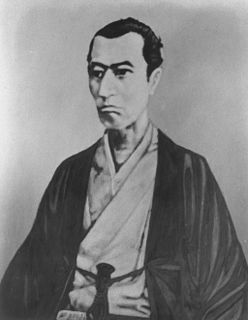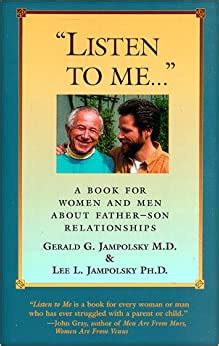A Quote by Yoshida Shoin
If the body dies, it does no harm to the mind, but if the mind dies, one can no longer act as a man even though the body survives.
Related Quotes
By means of personal experimentation and observation, we can discover certain simple and universal truths. The mind moves the body, and the body follows the mind. Logically then, negative thought patterns harm not only the mind but also the body. What we actually do builds up to affect the subconscious mind and in turn affects the conscious mind and all reactions.
The mind commands the body, and it obeys forthwith; the mind commands itself, and is resisted. The mind commands the hand to be moved, and such readiness is there that the command is scarce to be distinguished from the obedience. Yet the mind is mind, and the hand is body. The mind commands the mind to will, and yet, though it be itself, it obeyeth not. Whence this monstrous thing? and why is it?
If you become capable of relaxing the body voluntarily, then you will be able to help your mind relax voluntarily. Mind is a more complex phenomenon. Once you have become confident that the body listens to you, you will have a new trust in yourself. Now even the mind can listen to you. It will take a little longer with the mind, but it happens.
Nature hath made men so equal in the faculties of body and mind, as that though there be found one man sometimes manifestly stronger in body, or of quicker mind than another, yet when all is reckoned together, the difference between man and man is not so considerable as that one man can thereupon claim to himself any benefit to which another may not pretend as well as he.
There is a strange fact about the human mind, a fact that differentiates the mind sharply from the body. The body is limited in ways that the mind is not. One sign of this is that the body does not continue indefinitely to grow in strength and develop in skill and grace. By the time most people are thirty years old, their bodies are as good as they will ever be; in fact, many persons' bodies have begun to deteriorate by that time. But there is no limit to the amount of growth and development that the mind can sustain. The mind does not stop growing at any particular age.
Hazel has to realize that her mom was wrong when she said, “I won’t be a mother anymore.” The truth is, after Hazel dies (assuming she dies), her mom will still be her mom, just as my grandmother is still my grandmother even though she has died. As long as either person is still alive, that relationship survives. (It changes, but it survives.)
The mind commands the body and is instantly obeyed. The mind commands itself and meets resistance. The mind commands the hand to move, and it so easy that one hardly distinguishes the order from its execution. Yet mind is mind and hand is body. The mind orders the mind to will. The recipient of the order is itself, yet it does not perform it.
Nakamura Tempu Sensei viewed the mind as a segment of the body that could not be seen and the body as the element of the mind that was observable. He also likened the mind and body to a stream, with the mind as the source flowing down to the body. Whatever we drop in the stream will be carried down by the current. In like manner, our thoughts will influence the body and our well being.






























